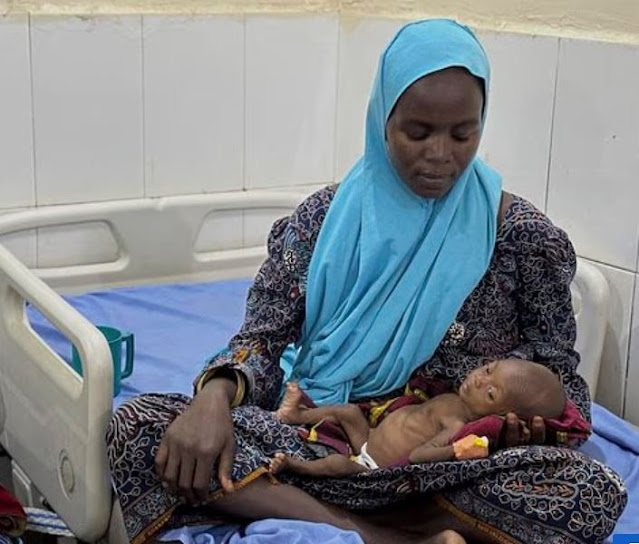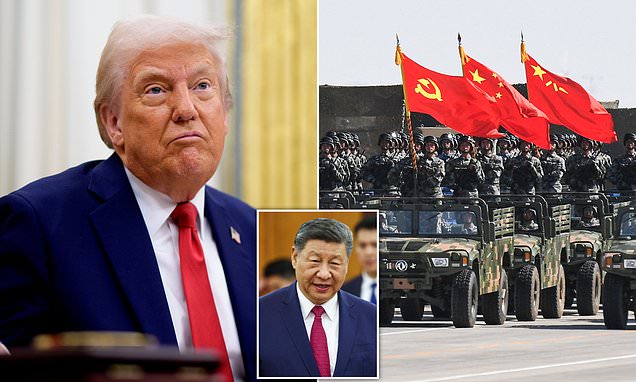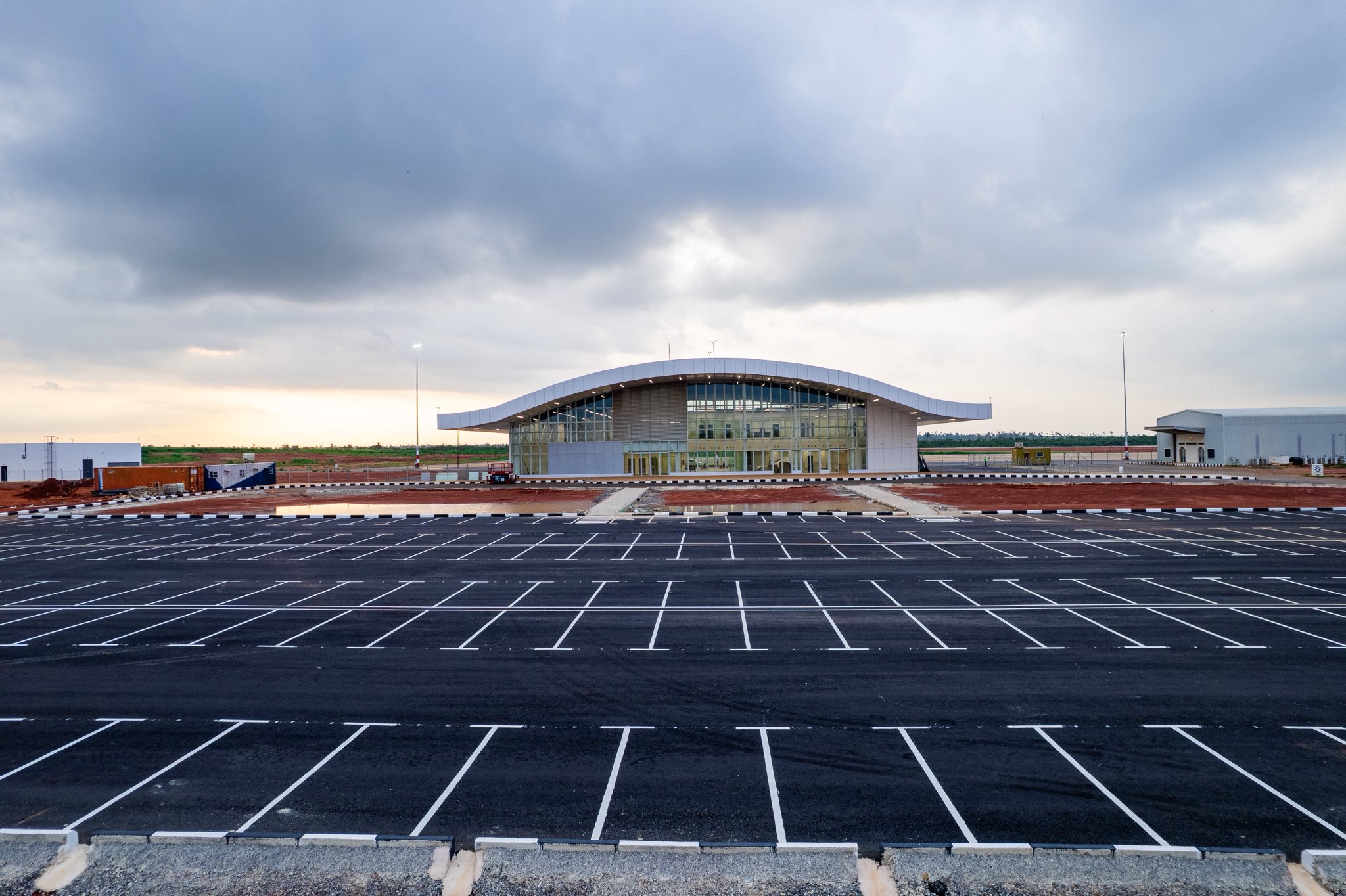In a significant move to address the escalating food insecurity crisis in Nigeria, the United States government has approved a substantial $325 million in funding aimed at bolstering humanitarian efforts to combat hunger and provide critical support to vulnerable populations across the country. This announcement, which underscores the U.S.’s commitment to supporting Nigeria during a period of acute economic and environmental challenges, is poised to make a transformative impact on millions of Nigerians grappling with food shortages, malnutrition, and displacement. The funding, channeled through the United States Agency for International Development (USAID) and other partners, will focus on delivering emergency food assistance, improving agricultural resilience, and addressing the root causes of hunger in Nigeria’s most affected regions.
Background: Nigeria’s Food Insecurity Crisis
Nigeria, Africa’s most populous nation with over 200 million people, has been grappling with a deepening food insecurity crisis in recent years. According to the United Nations and other global humanitarian organizations, over 25 million Nigerians are currently facing acute food insecurity, with millions more at risk of falling into crisis levels due to a confluence of factors. These include ongoing conflict in the northern regions, climate change-induced disruptions, economic instability, and rising food prices exacerbated by global supply chain challenges.
The northern part of Nigeria, particularly the states of Borno, Adamawa, and Yobe, has been severely impacted by the Boko Haram insurgency and other armed conflicts, which have displaced millions of people and disrupted agricultural activities. The Internal Displacement Monitoring Centre (IDMC) estimates that over 3 million Nigerians are internally displaced, many of whom rely on humanitarian aid for survival. In addition, erratic weather patterns, including flooding and drought, have devastated crop yields, further exacerbating food shortages. The economic fallout from the COVID-19 pandemic, coupled with the depreciation of the Nigerian naira and soaring inflation, has made basic food items unaffordable for many households.
The 2025 Cadre Harmonisé report, a regional framework for analyzing food security in West Africa, projects that without immediate intervention, Nigeria could see a significant increase in the number of people facing “crisis” or “emergency” levels of food insecurity (Phase 3 and Phase 4 on the Integrated Food Security Phase Classification scale). Malnutrition rates, particularly among children under five, are alarmingly high, with thousands at risk of severe acute malnutrition, which can have lifelong consequences if not addressed promptly.
The U.S. Response: A $325 Million Commitment
Recognizing the severity of the crisis, the United States has stepped in with a robust financial commitment of $325 million to support humanitarian and development programs aimed at alleviating hunger and building long-term resilience in Nigeria. This funding is part of a broader U.S. strategy to address global food insecurity, with Nigeria being a priority due to the scale of its challenges and its strategic importance in West Africa.
The funds will be administered primarily through USAID, in collaboration with international organizations, local NGOs, and the Nigerian government. The allocation is expected to support a multi-pronged approach that includes immediate food assistance, agricultural development, nutrition programs, and efforts to address the underlying causes of food insecurity, such as conflict and climate change.
Key Objectives of the Funding
Emergency Food Assistance: A significant portion of the $325 million will be directed toward providing immediate food aid to populations facing acute hunger. This includes the distribution of food supplies such as rice, maize, beans, and fortified nutritional products to displaced persons, refugees, and other vulnerable groups. The World Food Programme (WFP), a key partner in this initiative, has already been active in Nigeria, reaching millions of people with food assistance. The additional funding will enable the WFP and other organizations to scale up their operations, ensuring that aid reaches remote and conflict-affected areas.
Nutrition Interventions: Malnutrition, particularly among children, pregnant women, and lactating mothers, is a critical concern in Nigeria. The U.S. funding will support programs aimed at preventing and treating malnutrition, including the provision of ready-to-use therapeutic foods (RUTF) for children suffering from severe acute malnutrition. Community-based nutrition programs will also be expanded to educate families on proper nutrition and promote breastfeeding and dietary diversity.
Agricultural Development and Resilience: To address the root causes of food insecurity, the funding will support initiatives to boost agricultural productivity and resilience. This includes providing farmers with improved seeds, fertilizers, and training on climate-smart agricultural practices. The U.S. will also invest in irrigation systems and other infrastructure to help farmers adapt to changing weather patterns. These efforts aim to reduce Nigeria’s reliance on food imports and strengthen local food systems.
Support for Displaced Populations: The funding will prioritize assistance for internally displaced persons (IDPs) and refugees, many of whom have lost their livelihoods due to conflict. In addition to food aid, the U.S. will support programs that provide shelter, clean water, and sanitation services to displaced communities, ensuring a holistic approach to humanitarian assistance.
Conflict Mitigation and Peacebuilding: Recognizing that conflict is a major driver of food insecurity in Nigeria, the funding will also support initiatives aimed at promoting peace and stability. This includes community-based programs to address intercommunal tensions and support for local governance structures to strengthen conflict resolution mechanisms.
The Broader Context: Global Food Security and U.S. Leadership
The $325 million commitment to Nigeria is part of a broader U.S. effort to address global food insecurity, which has been exacerbated by a combination of factors, including the Russia-Ukraine conflict, which disrupted global grain supplies, and climate change, which has led to extreme weather events worldwide. In 2022, the U.S. launched the Feed the Future initiative, a global hunger and food security program aimed at transforming agricultural systems and improving nutrition outcomes in vulnerable countries. Nigeria, as one of the initiative’s focus countries, has benefited from sustained U.S. support in this area.
The Biden administration has emphasized food security as a key pillar of its foreign policy, recognizing that hunger and malnutrition can destabilize societies and exacerbate conflict. By investing in Nigeria, the U.S. aims to not only alleviate immediate suffering but also contribute to long-term stability in the region. This aligns with the U.S.’s broader geopolitical strategy of strengthening partnerships in Africa, where Nigeria plays a pivotal role as a regional leader.
Challenges in Implementation
While the $325 million funding is a significant step forward, implementing these programs in Nigeria presents several challenges. The country’s complex security environment, particularly in the northeast, poses risks to humanitarian workers and complicates the delivery of aid to remote areas. Corruption and bureaucratic inefficiencies within Nigeria’s public sector could also hinder the effective distribution of resources. To address these issues, USAID and its partners are expected to work closely with local organizations and community leaders to ensure transparency and accountability in the use of funds.
Additionally, the scale of Nigeria’s food insecurity crisis means that the $325 million, while substantial, may not be sufficient to address all needs. Sustained investment and coordination with other donors, including the European Union, United Kingdom, and multilateral organizations like the United Nations, will be critical to maximizing impact. The Nigerian government also has a role to play in creating an enabling environment for humanitarian and development programs, including addressing systemic issues such as poor infrastructure and weak agricultural policies.
Impact and Expected Outcomes
The U.S.’s $325 million investment is expected to have a significant impact on Nigeria’s food security landscape. In the short term, the funding will provide life-saving assistance to millions of Nigerians facing hunger and malnutrition. By scaling up food distributions and nutrition programs, the initiative will help prevent famine-like conditions in the most affected regions. For instance, the WFP estimates that with adequate funding, it can reach an additional 1.5 million people in Nigeria with emergency food aid over the next year.
In the long term, the focus on agricultural development and resilience is expected to empower farmers and strengthen local food systems. By equipping farmers with the tools and knowledge to adapt to climate change, the U.S. aims to reduce Nigeria’s vulnerability to future shocks. The emphasis on conflict mitigation and support for displaced populations will also contribute to social cohesion and stability, creating a more conducive environment for sustainable development.
Voices from the Ground
The announcement of the U.S. funding has been met with optimism by humanitarian organizations and local communities in Nigeria. “This is a lifeline for millions of Nigerians who are struggling to feed their families,” said a representative from a local NGO working in Borno State. “With this support, we can reach more people and help them rebuild their lives.”
Farmers in northern Nigeria, who have faced years of disrupted planting seasons due to conflict and climate challenges, expressed hope that the agricultural programs will enable them to return to their fields. “We need seeds, tools, and training to get back on our feet,” said Aisha, a farmer from Yobe State. “This help from the U.S. gives us hope that we can grow our own food again.”
The Role of International Cooperation
The U.S.’s commitment to Nigeria underscores the importance of international cooperation in addressing global challenges like food insecurity. Nigeria’s crisis is not an isolated issue but part of a broader global trend, with over 800 million people worldwide facing hunger in 2025, according to the Food and Agriculture Organization (FAO). By working with partners like the WFP, UNICEF, and local organizations, the U.S. is leveraging its resources to achieve greater impact.
Other countries and donors are also stepping up their efforts in Nigeria. For example, the United Kingdom recently announced additional funding for nutrition programs in Nigeria, while the African Development Bank is investing in agricultural infrastructure projects. These collective efforts are critical to ensuring that Nigeria can address its food security challenges holistically.
Looking Ahead: A Path to Sustainable Food Security
While the $325 million in U.S. funding is a critical step, achieving sustainable food security in Nigeria will require long-term commitment and systemic change. The Nigerian government must prioritize policies that support agriculture, improve infrastructure, and address the root causes of conflict and displacement. Investments in education, healthcare, and economic opportunities will also be essential to breaking the cycle of poverty and hunger.
For its part, the U.S. has signaled its intention to remain a key partner in Nigeria’s development. USAID’s ongoing programs in the country, including those focused on health, education, and governance, complement the new funding for food security, creating a comprehensive approach to addressing Nigeria’s challenges.
Conclusion
The U.S.’s approval of $325 million to combat hunger in Nigeria represents a significant and timely intervention in one of the world’s most pressing humanitarian crises. By addressing both immediate needs and long-term challenges, the funding has the potential to save lives, empower communities, and pave the way for a more food-secure future in Nigeria. As the country navigates the complexities of conflict, climate change, and economic hardship, the support of international partners like the U.S. will be crucial in helping millions of Nigerians overcome hunger and build a brighter future.
Through sustained collaboration, innovation, and a commitment to addressing the root causes of food insecurity, Nigeria can move closer to achieving the United Nations’ Sustainable Development Goal of zero hunger by 2030. For now, the $325 million investment serves as a beacon of hope for millions of Nigerians, signaling that the international community is standing with them in their fight against hunger.






